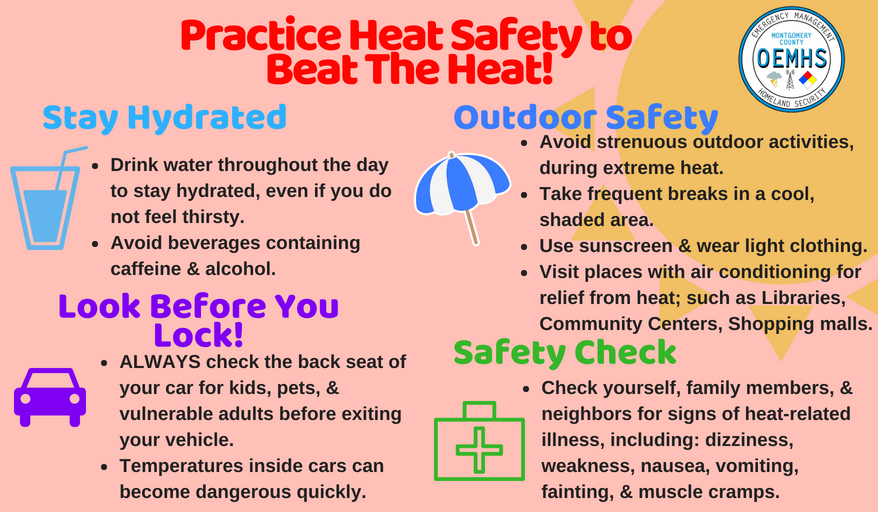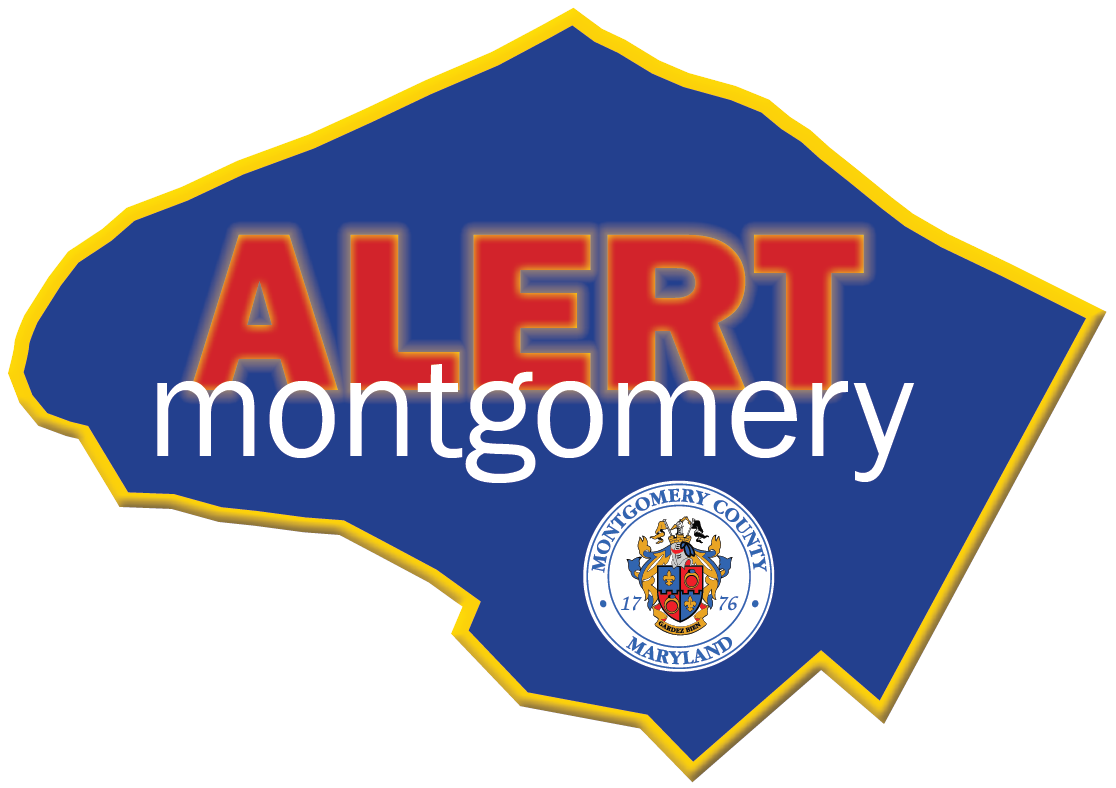Extreme Heat
Extreme heat affects the body's ability to regulate temperature which can create dangerous conditions if appropriate safety measures are not taken. Heat may affect air quality, especially in urban areas, and may have a stronger impact on the eldery, children, and sick persons.

Before periods of extreme and excessive heat:
- Check your air conditioning to ensure it is in good, working condition.
- Use attic air conditioning units to clear the hot air.
- Weather strip doors and window sills to keep cool air in.
- Find places in/near your community where you can get cool, such as libraries, senior centers, recreation centers, and shopping malls.
- Learn to recognize the signs of heat-related illness (see below).
During periods of extreme and excessive heat:
- Drink plenty of fluids, such as water and fruit juice, to prevent dehydration. Don’t wait until you’re thirsty to drink. Avoid alcohol, caffeine and overly sweetened beverages.
- Wear loose-fitting, lightweight and light-colored clothes.
- Avoid direct sunlight by staying in the shade and wear sunscreen, a wide-brimmed hat and sunglasses.
- Stay in air-conditioned areas when possible. If your home is not air-conditioned, consider a visit to County facilities or a shopping center during regular business hours, or visiting with family or friends who have air conditioning.
- Electric fans may provide comfort, but will not prevent heat-related illnesses on very hot days.
- Always check your backseat for children, pets, and vulnerable adults before exiting your vehicle. Never leave children, adults, and pets alone inside a vehcle on a warm day, even with the window cracked. Temperatures inside vehicles can become dangerous quickly.
- Take it easy when outdoors. Athletes and those who work outdoors should take short breaks in a shaded, cool area when feeling fatigued. Schedule physical activity during the morning or evening when it is cooler.
- Take pets for walk in the morning or evening when it is cooler. If the sidewalk is too hot for your hand, it's too hot for their paws.
- Check on friends, family, and neighbors for signs of heat-related illness.
Understand the illnesses associated with extreme and excessive heat:
Heat Cramps
- Signs: Muscle pains or spasms in the stomach, arms, or legs
- Actions: Go to a cooler location. Remove excess clothing. Take sips of cool sports drinks with salt and sugar. Get medical help if cramps last more than an hour.
Heat Exhaustion
- Signs: Heavy sweating, paleness, muscle cramps, tiredness, weakness, dizziness, headache, nausea or vomiting, or fainting
- Actions: Go to an air-conditioned place and lie down. Loosen or remove clothing. Take a cool bath. Take sips of cool sports drinks with salt and sugar. Get medical help if symptoms get worse or last more than an hour.
Heat Stroke
- Signs: Extremely high body temperature (above 103 degrees) taken orally; red, hot, and dry skin with no sweat; rapid, strong pulse; dizziness; confusion; or unconsciousness
- Actions: Call 911 or get the person to a hospital immediately. Cool down with whatever methods are available until medical help arrives.
Additional resources:
During these extreme conditions, listen to the radio, watch television news, and make sure you've signed up for Alert Montgomery, to receive all the latest information.
- For more information on extreme heat preparedness, visit Ready.gov
- Also check out the Center for Disease Control and Prevention Extreme Heat Resources

